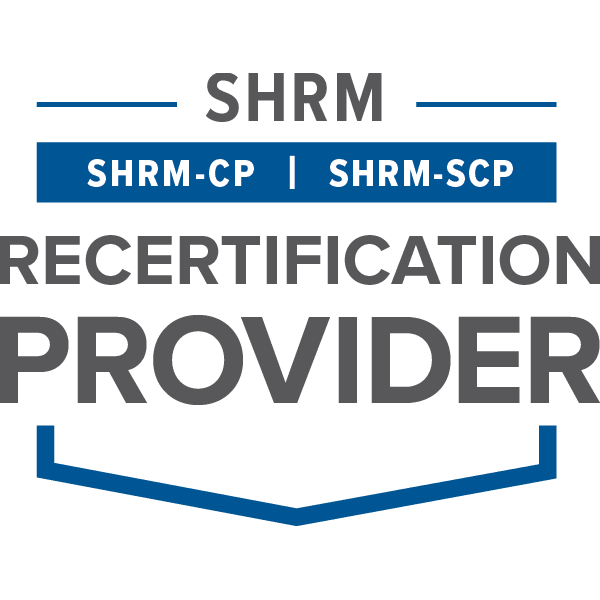- 827 Lincoln Ave. #B-10 West Chester, PA 19380
- support@hrdq.com
- +1-610-279-2002
Quick Links
Menu
Featured Topics
Menu
Total Results
We could not find what you're looking for. Please try again.No Record Found
Don’t miss this upcoming event from HRDQ-U

How often do you hear that a person needs to work on their professional or executive presence? Presence is an elusive term used to bundle a lot of expectations. These expectations include self-awareness, emotional intelligence, speaking, and acting with confidence. The term also assumes that the person is a role model even in the most difficult times and that they can hear others at a deep level that includes not only content but hopes and fears. Having presence means being reasonable, level-headed, and using good judgment. However, when the executive, leader, or professional is stressed and in fight-or-flight mode, they can’t do those things. Seemingly immediately, the person has switched from a level-headed leader to someone directing their frustration towards their peers, direct reports, boss, customers, or company. In those moments, these intelligent individuals have lost their presence, and their self-esteem is shattered.
Join this webinar to learn that what erodes professional and executive presence and creates emotional triggers is not a lack of knowledge, skills, or abilities. The remedy is not found in a constructive confrontation course, an EQ course, or even traditional coaching. The root of the issue is a lot deeper than that. It’s tied to our mind chatter, our self-esteem, our fears, and our early formed beliefs. We will go deep into the source, and by taking this journey, you will learn a lot about your own professional or executive presence and how early beliefs are unconsciously self-sabotaging your best self.


Carlann Fergusson is an executive coach, behavioral change expert, and owner of Propel Forward LLC. Her guidance is based on coaching, training, and selecting hundreds of executives across diverse companies and her own journey through the executive ranks. Carlann is also honored to influence future executives as an adjunct instructor for Northwestern University’s Leadership Program, where she received Northwestern’s School of Professional Studies Distinguished Teaching Excellence Award.
Her book, The Insightful Leader: Find Your Superpowers, Crush Limiting Beliefs and Abolish Self-Sabotaging Behaviors, received endorsements from Marshall Goldsmith, New York Times, and Jack Stahl, Former CEO of Revlon and The Coca-Cola Company. Carlann has been a featured guest on ABC News Radio, Wharton Business Radio, The Mel Robbins Show, and iHeart Radio. Carlann resides in Orlando, Florida, with her husband, who works for Disney. They shamelessly lure their children and grandchildren into family visits with free park tickets.
Training Tools for Developing Great People Skills
This event is sponsored by HRDQ. For 45 years HRDQ has provided research-based, off-the-shelf soft-skills training resources for classroom, virtual, and online training. From assessments and workshops to experiential hands-on games, HRDQ helps organizations improve performance, increase job satisfaction, and more.
Learn more at HRDQstore.com

“The content and presenter were exceptional. This should be incorporated in executive orientation for all companies. The course not only allows you to look within but inspires you to make the necessary behavioral and emotional changes to model within your organization; leading by example to encourage change.”
Jasmin H.
Program Analyst
Department of Homeland Security

“The short but informative seminar had me look in a mirror and really open up to myself about things I never realized I was doing or saying to myself. I walked away with several light bulb moments. I plan on implementing several items Carlann had discussed. Carlann was also an energetic instructor that kept my attention and drew me in. Thank you for what you have provided in such a short time.”
Jacki S.
Admin Tech
NDOT

“This webinar came at the perfect time, as my director just gave me feedback on working on my executive presence. There were some great pointers on how to identify my behaviors and the root cause of them to better myself as an individual and help me achieve my career goals. Carlann was so personable, and her real-life examples did an amazing job of putting things into perspective.”
Megan L.
Learning and Development Specialist
Chico’s FAS

Sign up to be notified of upcoming live webinars, in-depth workshops, podcasts, blog posts, promotions and much more. Stay ahead of the curve and subscribe for FREE today!
5 Responses
Question: As an individual of a team, how do I tell my manager I am working on my executive presence? And how can they help me progress in my career this advancement?
Answer: Yeah, so I would just use some of those behavioral things with your manager to say, look, I really want to work on my executive presence. What are some of the behaviors that you see in me that I can improve upon? And do you know any of the reputations that are out out there about me that are good and also on the negative side that I can work on? And then you know, come join us, right? Come and join us for the journey and do that deeper work on yourself? But I would start there, just get that open, honest feedback. If you’re willing to disclose first you You’ll get more information from your manager. So if I say, look, I think that my team is, you know, not responding well to me. And I’ve seen this tension in this room. And if you can start to label some of those things, like when I got up in my head, and I went, What am I doing that makes me unfriendly? Oh, my God, it was like a floodgate, right. I don’t say how was your weekend, I don’t notice people in the halls. If I share that with my boss, they’re going to be more open to giving me real, honest feedback. If I go in and I just say, hey, you know, I’d like some behavioral feedback. How am I doing? That leader has no idea how open you are to that.
Question: Is it coaching each week? Or is there other work that is involved?
Answer: Yeah, there is other work that’s involved. So even though it looks like just you know, two hours of coaching each week, they are actually watching a video on the topic. And then doing some deep insight work, we actually recommend and most people do a short meditation before the Insight work, because we are unlocking that subconscious. So they do that. And then they come in with all that kind of insight work done. And then we also encourage people to keep a gratitude journal of the changes they are seeing in themselves. Most have never done that before. But it really shifts your energy, especially when we’re using it as a targeted thing to say, what have you seen change in you? Where have you seen that you didn’t respond? Were in the past you would have and some of those other incredible changes. So there are some work, it takes them about one to two hours a week before you come in to the coaching.
Question: How do you handle a team member who is a star employee, but a dreadful team member, they’re consistently rewarded by senior leaders, but their direct supervisor has a horrible time keeping staff because of this individual?
Answer: Oh, okay. All right. So to get that initial feedback with that person, because they probably have no idea of how they’re even coming across, I would still do a 360 with them geared toward team members, right. So not just team members, but key stakeholders. So they can start to see also how different they are. The other thing is you could for the manager, they could start to have some of the conversations with them, if the managers willing to be a little bit more direct about what those perceptions are, if they don’t want to go down that 360 path, right. And I would start there because they need to understand there’s perception just like me being told, I was unfriendly. Nobody wants to hear it. But I tell you, I am a totally different person because of it. And I think that head of our agency all the time for being so honest with me, right? So if you can get your manager to be so honest, to see that they’re helping the individual not hurting the individual, by giving them that feedback and helping them find ways to start dealing with what’s causing that.
Question: Amy says this requires some deep sharing. How do you ensure confidentiality?
Answer: it does require some deep sharing. So there’s a lot of things done for with four ways come to mind. First, each participant before they participate is agreeing to confidentiality agreement, recognizing that everybody has their story. And it’s their personal story and not to share. They none of the people who are participating in the tribe come from the same company, unless it’s a huge fortune 500, where they’re never going to work together. So we make sure that that occurs. We have all the attendees only use their first name. We don’t have anybody, even in introductions mentioned where they work, or their job titles, of course, that’s done to to keep them from posturing with each other. Because they’re here, just as individuals sharing their stories and connecting at that much deeper level. So and then I don’t record any of the coaching sessions, because who you are in week one, I guarantee you is not who you are when you finish the journey. So we don’t need any records of anything. And all of that helps fill that confidentiality. Also, you see just people connect very quickly through this process. So they care a lot about the other people they go through. And they tend to keep those networks going afterwards.
Question: Are there any traits you consider before determining if someone is ready to do this deeper work?
Answer:That’s a great, great question. If someone is extremely defensive, like the person I had mentioned earlier, it’s better to do some initial steps to help them deal with and become open to feedback. And you can do that by giving them maybe a highly valid self assessment like the Harrison or you might want to use a 360 for them to get feedback from you know, their direct reports, peers, key stakeholders, etc. I love true scores because they’re set to the different level. I don’t sell these so you can just reach out to them. But I love it because there’s one for executive there a couple for executives level manager level etc. But I always find doing those are really, really helpful because it’s going to open them up to accept the feedback and then they’re more open to looking at themselves.